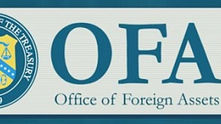Navigating the Intricacies: Understanding U.S. Travel Bans and Visa Suspensions
|
The conversation around international travel sanctions has increasingly included discussions about sanctions in the form of travel bans and visa suspensions. Understanding these measures is crucial, especially for businesses and individuals navigating the complexities of global travel.
This blog post delves into the nuances of travel bans and visa suspensions, particularly in the context of the United States, offering clarity on these crucial topics.
Understanding Travel Bans and Visa Suspensions
Travel Bans: As defined by the United Nations in the document Travel Ban: Explanation Of Terms, a travel ban is a restrictive measure imposed by countries or international organizations to prohibit individuals or groups from entering their territories. These bans often address severe concerns such as security threats, human rights violations, or political upheavals.
Visa Suspensions: Contrary to a travel ban, a visa suspension does not outright prohibit entry but makes obtaining permission to enter a country significantly more challenging. In the United States, visa suspension is often used in diplomatic and policy measures, serving as a flexible response to international events and individual cases.
The U.S. Department of State's Approach
The United States, through the Department of State, has a multifaceted approach to handling international travel and security concerns. This is exemplified by the Travel Advisory system, which categorizes countries based on various factors, including safety, political stability, crime rates, and the risk of natural disasters. While not a direct travel ban, this system is critical in informing the public about potential risks associated with traveling to specific destinations.
Public Listings and Reporting
A key aspect of the United States' approach to visa sanctions and travel-related restrictions is transparency. The Department of State makes public designations of individuals involved in serious violations like corruption or human rights abuses. Under Section 7031(c) of the Department of State, Foreign Operations, and Related Programs Appropriations Act, these designations are essential to the U.S. government's commitment to uphold global human rights and combat corruption. The annual public listing offers a clear and detailed account of individuals subject to these restrictions, providing valuable information to the public and international community.
Final Thoughts
The distinction between travel bans and visa suspensions is subtle yet significant, especially in international diplomacy and security. As the global landscape evolves, staying informed about these measures and understanding their implications is imperative.
The United States' approach, mainly through the Department of State, offers a blueprint for how nations can navigate these complex issues while promoting safety, accountability, and human rights. As we witness global politics and security changes, businesses, travelers, and policymakers must remain vigilant and well-informed about these developments.
By understanding the nuances of travel bans and visa suspensions, we can better navigate the intricacies of international travel and global relations. Whether planning a trip abroad, conducting international business, or simply seeking to stay informed, keeping abreast of these measures is essential in today's interconnected world.
Stay informed and ahead of the curve in the Dynamic World of Sanctions
As a Compliance Officer or Chief Compliance Officer, understanding how sanctions regimes work is vital to mitigating the risk of non-compliance in your organization.
Keep up with the sanctions world with our monthly case study analysis to help you make decisions in comparable circumstances.
Contact us at info@pst.ag for more information.



